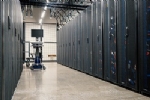Specialist
 On 8 March 2021, EirGrid and the Minister for the Environment, Climate and Communications launched a nationwide consultation report on the future of Ireland’s electricity system (the Consultation Report).
On 8 March 2021, EirGrid and the Minister for the Environment, Climate and Communications launched a nationwide consultation report on the future of Ireland’s electricity system (the Consultation Report).
The Consultation Report is the precursor to EirGrid’s “Shaping our electricity future roadmap” that EirGrid intends to publish in Autumn 2021 and will form an important part of Ireland’s wider strategy of achieving 70% renewable electricity by 2030. The purpose of the roadmap is to advise and guide the government, regulators, industry stakeholders and consumers on achieving this strategy.
The Consultation Report sets out four approaches to achieving Ireland’s renewably electricity targets:
-
Generation-led – Put clean electricity generation close to where most power is used.
-
Developer-led – Let developers decide where to locate clean electricity generation.
-
Technology-led – Try new ways to move clean electricity across the country.
-
Demand-led – Put large electricity users such as data centres close to sources of clean electricity generation.
Data centres in Ireland’s future electricity system
Data centres are central to the Irish digital economy as reliance on technology and the ongoing need to access digital information has become a necessity. With the continued growth of the ICT sector, Ireland is reported as the fastest-growing data centre market in Europe with more than a billion euro worth of projects planned, according to industry figures.
As the sector grows, data centres are predicted to be a significant user of Irish energy resources in the future. The Irish government’s 2019 Climate Action Plan predicts that data centres will account for as much as 31% of Ireland’s electricity needs by 2027. The data centre industry is also playing an important role in promoting the move to renewable electricity with many large data centre users driving zero carbon (indeed negative carbon) targets.
Currently, data centre development in Ireland is primarily focused in the Dublin area due to proximity to the ICT client base and a robust communications network. By contrast, the Dublin region continues to be an area with high grid capacity constraint. To address this, EirGird has introduced grid connection policy whereby connections to the grid in constrained areas such as the Dublin region may be on a ‘flexible demand’ basis meaning EirGrid may at times require data centres to reduce their electrical demand from the grid.
-
Please see A&L Goodbody’s publication on the flexible demand policy for further information – available here.
As security of power supply is fundamental to data centre operation, EirGrid’s flexible demand policy means that development of alternative large scale semipermanent (or permanent) onsite generation is becoming common place as part of data centre development in the Dublin region. The additional infrastructure required for onsite generation raises its own property, planning and regulatory requirements that
need to be considered as part of a wider data centre project.
The renewable electricity drivers coupled with security of power supply mean data centres are front and centre of Ireland’s looking forward sustainable development policy. One of the key actions in the Climate Action Plan is to ensure that large demand connections are regionally balanced to minimise grid reinforcements. The Consultation Report is a further step along the way in policy development with data centres called out as central to the “demand-led” approach to move large electricity users close to sources of clean electricity generation.
These policy shifts may have a significant impact on data centre development in Ireland in the future in terms of where data centres may be located and how they may connect to power sources. Whereas to date the traditional drivers for data centre location in Ireland have included proximity to fibre connection and proximity to other data centres, we may see a greater emphasis from data centre developers and users on proximity to clean electricity sources outside of the greater Dublin region. A good recent example is Echelon’s recent co-development arrangement with SSE to facilitate the construction of a 220kV substation to connect the Arklow Bank Phase 2 offshore windfarm and Echelon’s 100MW data centre in Arklow.
The consultation period for the Consultation Report is open until 14 June 2021, following which EirGrid will finalise the roadmap. We continue to monitor developments in this important area including how industry consultations on the Consultation Report progress
By John Dallas and Robbie Nicholas of A&L Goodbody LLP